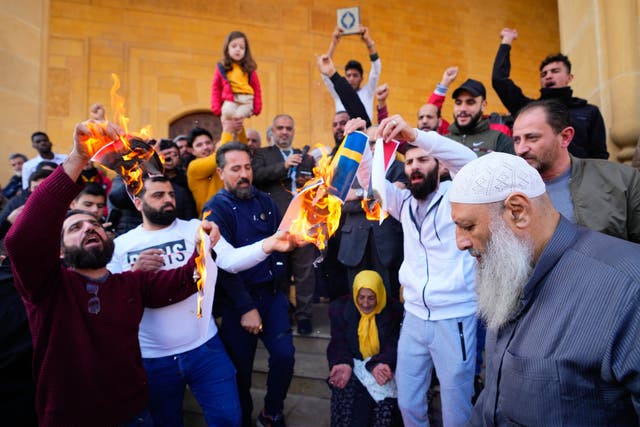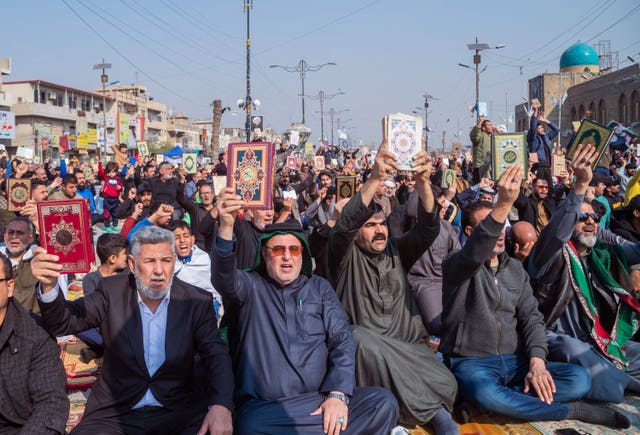
Protests have been held in several predominantly Muslim countries to denounce the recent desecration of Islam’s holy book by far-right activists in Sweden and the Netherlands.
The protests in countries including Pakistan, Iraq and Lebanon ended with people dispersing peacefully.
In Pakistan’s capital Islamabad, police officers stopped some demonstrators trying to march towards the Swedish embassy.
In Beirut, about 200 angry protesters burned the flags of Sweden and the Netherlands outside the blue-domed Mohammed Al-Amin mosque in central Martyrs Square.

Earlier this month, a far-right activist from Denmark received permission from police to stage a protest outside the Turkish embassy in Stockholm where he burned the Koran, Islam’s holy book.
Days later, Edwin Wagensveld, Dutch leader of the far-right Pegida movement in the Netherlands, tore pages out of a copy of the Koran near the Dutch parliament and stomped on them.
The moves angered millions of Muslims around the world and triggered protests.
Swedish officials have stressed that freedom of expression is guaranteed by the Swedish constitution and gives people extensive rights to express their views publicly, though incitement to violence or hate speech is not allowed.
Demonstrators must apply to police for a permit for a public gathering.
Police can deny such permits only on exceptional grounds, such as risks to public safety.

Iraq’s powerful Shiite cleric Muqtada al-Sadr asked in comments released on Friday whether freedom of speech means offending other people’s beliefs.
He asked why “doesn’t the burning of the gays’ rainbow flag represent freedom of expression”.
The cleric added that burning the Koran “will bring divine anger”.
Hundreds of his supporters gathered outside a mosque in Baghdad waving copies of the Koran.


Comments: Our rules
We want our comments to be a lively and valuable part of our community - a place where readers can debate and engage with the most important local issues. The ability to comment on our stories is a privilege, not a right, however, and that privilege may be withdrawn if it is abused or misused.
Please report any comments that break our rules.
Read the rules hereLast Updated:
Report this comment Cancel